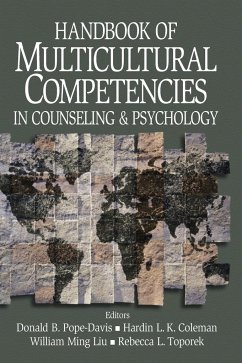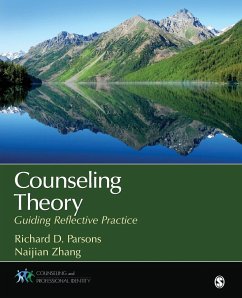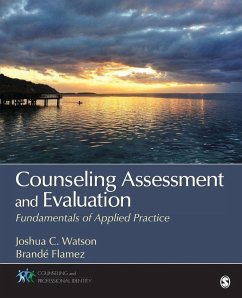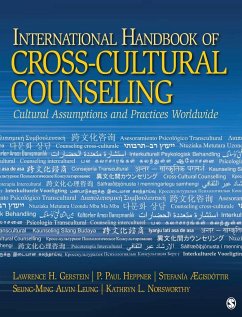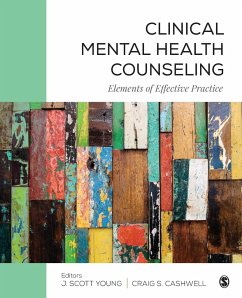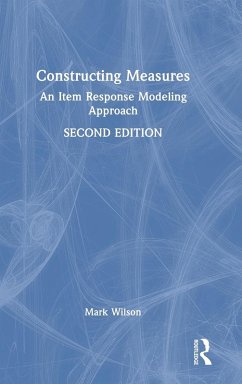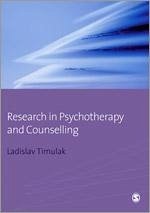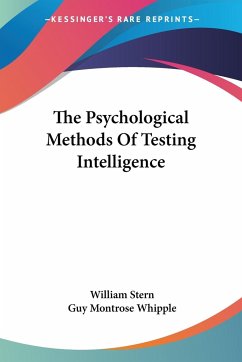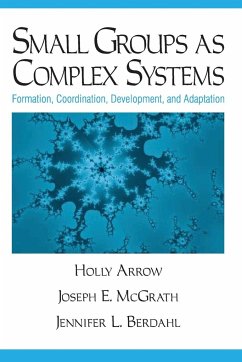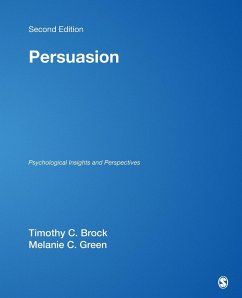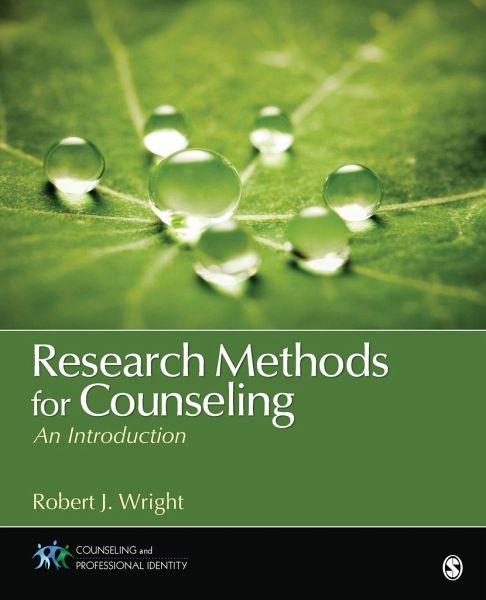
Versandkostenfrei!
Versandfertig in 1-2 Wochen

PAYBACK Punkte
88 °P sammeln!




Research Methods for Counseling: An Introduction provides a rich, culturally sensitive presentation of current research techniques in counseling. Author Robert J. Wright introduces the theory and research involved in research des
Robert Wright earned a Bachelor's degree in Chemistry from Kutztown University of Pennsylvania in 1966, and began teaching high school science. A few years later in 1969 he earned a Masters degree in school counseling from West Chester University and was employed as a public school counselor, first with high school students and later with middle school students. In 1974 he completed a doctorate (Ph.D.) in Educational Psychology with specializations in child & adolescent development and educational measurement from Temple University. As part of that degree he completed a clinical fellowship in rehabilitation counseling at Moss Hospital, part of the Albert Einstein Medical Center (Philadelphia). Following graduation he completed advanced studies in school psychology at Lehigh University. Professor Wright has taught counseling and supervised counseling interns and has also taught educational measurement, and educational statistics & research for graduate students in counseling. He is a member of the American Counseling Association, the American School Counselor Association, the American Psychological Association (Division 17, counseling psychology), the Association for Counselor Education and Supervision, and the American Educational Research Association. He is professionally licensed to practice in Pennsylvania. During his career Professor Wright chaired 114 doctoral dissertations, published and presented over 120 articles and paper presentations and has had four books published.
Produktdetails
- Verlag: Sage Publications, Inc
- Seitenzahl: 624
- Erscheinungstermin: 12. Februar 2013
- Englisch
- Abmessung: 235mm x 191mm x 33mm
- Gewicht: 1147g
- ISBN-13: 9781452203942
- ISBN-10: 1452203946
- Artikelnr.: 36267858
Herstellerkennzeichnung
Libri GmbH
Europaallee 1
36244 Bad Hersfeld
gpsr@libri.de
Für dieses Produkt wurde noch keine Bewertung abgegeben. Wir würden uns sehr freuen, wenn du die erste Bewertung schreibst!
Eine Bewertung schreiben
Eine Bewertung schreiben
Andere Kunden interessierten sich für




